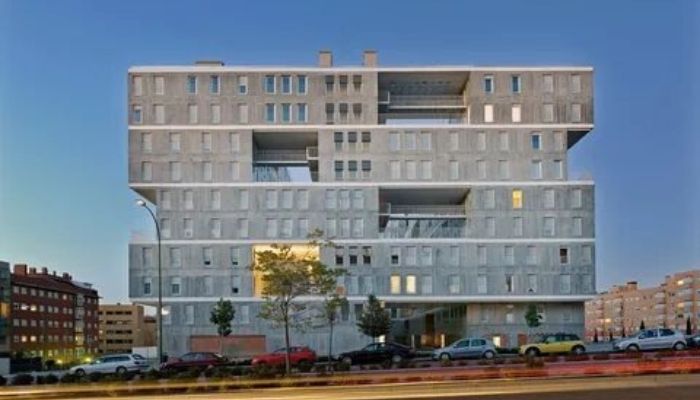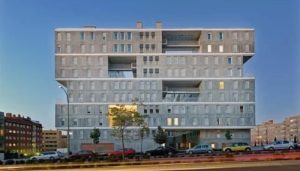Purchasing a flat in Madrid city center is an exciting opportunity, offering access to the city’s vibrant culture, iconic architecture, and convenient amenities. However, navigating the complex real estate market in one of Europe’s busiest capitals requires preparation. From researching the right neighborhood to understanding the legalities, every step counts in securing your ideal flat. Here are seven essential tips to guide you through the process:
1. Research the Neighborhoods
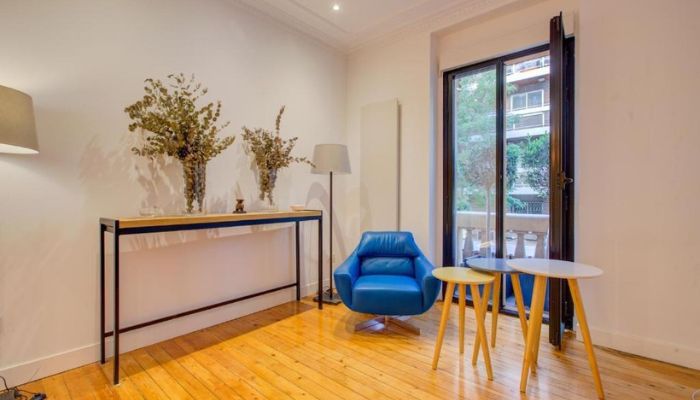
Madrid’s city center is made up of a variety of neighborhoods, each offering a different atmosphere and lifestyle. Choosing the right area is crucial for enjoying the city to its fullest. Some of the most popular neighborhoods include:
- Malasaña: Known for its trendy bars, street art, and alternative scene, Malasaña is a favorite among young professionals and creatives. It’s lively and perfect for those who enjoy the city’s social buzz.
- Chueca: This area is famous for its LGBTQ+ friendly environment, great nightlife, and diverse dining options. It’s also centrally located, close to Gran Vía.
- La Latina: If you love history and culture, La Latina is a great option. With its medieval streets, local tapas bars, and proximity to attractions like the Royal Palace, it offers a traditional Madrid vibe.
- Salamanca: A more upscale, residential area, Salamanca is perfect for families or those seeking a quieter, luxurious living experience, with designer boutiques and gourmet restaurants.
Key Considerations:
- Proximity to public transport (Metro stations and buses are key for central living).
- The overall safety and family-friendliness of the area.
- Local amenities like parks, schools, shopping centers, and cultural sites.
- Long-term property value and potential for growth, especially with upcoming infrastructure projects.
2. Understand the Legal Process
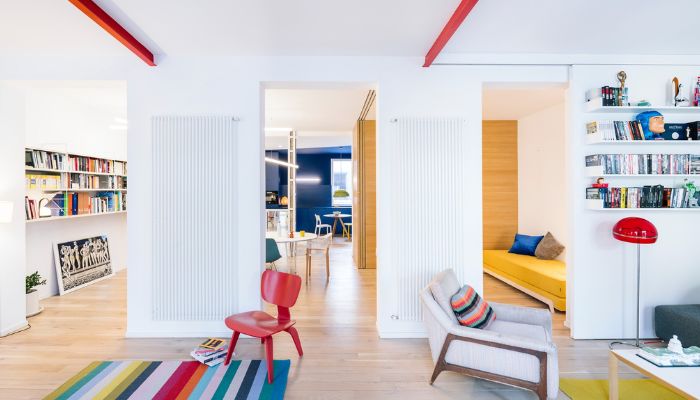
Buying property in Spain requires an understanding of the legal procedures to avoid any pitfalls. The process may differ significantly from other countries, and it’s crucial to ensure all legal aspects are covered. Here’s a basic overview:
- Hire a legal advisor (Gestor or Lawyer): A local real estate lawyer familiar with the property laws in Spain will help ensure that all paperwork is in order. They’ll also make sure the property is free from debts and other encumbrances.
- Securing a Notary: In Spain, property transactions must be signed before a notary to be legally binding. The notary ensures that all documents are correct, the sale is lawful, and the transfer of ownership is legitimate.
- Check for a Nota Simple: This document from the property registry confirms that the property has no outstanding debts, mortgages, or legal restrictions. Request this before committing to the purchase.
- Get a Foreign Identification Number (NIE): If you’re a non-Spanish citizen, you’ll need a Número de Identificación de Extranjero (NIE), which is required for any significant financial transactions in Spain, including buying property.
3. Set a Realistic Budget
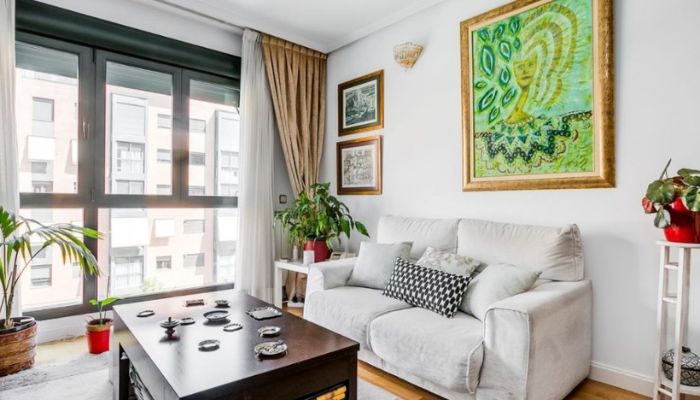
Setting a realistic budget is critical, especially in Madrid’s city center, where property prices are higher than in suburban areas. Besides the sale price of the flat, there are various additional costs you should be aware of:
- Property Transfer Tax (Impuesto de Transmisiones Patrimoniales – ITP): This ranges between 6-10% of the property value, depending on the region and the property’s age.
- Notary and Registry Fees: You’ll also need to cover the notary fees (0.5-1%) and property registration fees (0.5-1%).
- Real Estate Agent Fees: If you use an agent, expect to pay around 3-5% of the property price as commission.
- Mortgage Fees: If you plan to finance your flat through a mortgage, you will have to account for bank fees and potential insurance costs.
- Renovation and Maintenance: Older buildings in central Madrid may require refurbishment. Always factor in renovation costs for older properties and check for any necessary maintenance or repair work.
It’s highly recommended to seek pre-approval for a mortgage before starting your property search to set a clear spending limit.
4. Work with Local Real Estate Agents
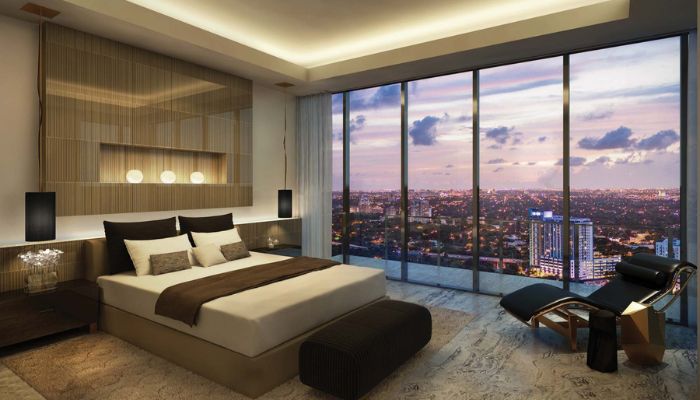
Partnering with a local real estate agent is essential for navigating Madrid’s competitive housing market. Madrid’s central properties are in high demand, and an experienced real estate agent (inmobiliaria) can provide valuable assistance in finding and securing the right flat.
Why work with local agents?:
- Access to off-market properties: Some listings are not widely advertised, especially high-demand properties. An agent may have insider knowledge of flats before they hit the market.
- Market expertise: A local agent can guide you through price trends, advise on the best time to buy, and provide details on upcoming developments that could affect property values.
- Legal knowledge: They can also assist with legal documentation and help ensure you follow Spain’s property laws.
Choose an agent with extensive experience in central Madrid, preferably someone with a proven track record of successful sales in the city’s more desirable districts.
5. Consider Property Age and Condition
Many properties in Madrid’s city center are located in historic buildings, which, while full of charm, may come with additional maintenance costs. Before committing, carefully assess the property’s age and condition.
Things to consider:
- Building structure: Ensure that the building has undergone recent inspections for structural issues. If the property is part of a historic building, check when it was last renovated.
- Energy efficiency: Old buildings may lack modern insulation, leading to higher energy costs, especially during Madrid’s cold winters and hot summers.
- Shared facilities: Inquire about the state of shared spaces such as elevators, staircases, and common areas.
- Potential for upgrades: If the flat needs renovations, factor in these costs early. Check whether any major construction or upgrades are needed, especially in historic properties.
6. Be Aware of Market Trends
Madrid’s real estate market can fluctuate based on various factors, such as tourism, government policies, and economic changes. Being aware of current market trends is crucial for making a smart investment.
Key trends to monitor:
- Current property prices: Check if prices in your desired area are increasing, stable, or decreasing. Madrid’s city center often experiences rising prices due to high demand.
- Short-term rental regulations: Some areas in Madrid are popular for Airbnb-style rentals, which can be profitable. However, be aware of potential regulatory changes affecting short-term rentals.
- Government policies: Keep an eye on local policies that could impact the market, such as regulations regarding foreign investments or rent controls in specific areas.
7. Inspect the Property Thoroughly
Before closing the deal, it’s essential to inspect the property thoroughly. This can prevent any unpleasant surprises after the purchase. If you’re unfamiliar with property inspections, hire a professional surveyor to help.
Things to check:
- Plumbing and electrical systems: Ensure everything is up to date and compliant with local regulations.
- Condition of shared spaces: In multi-unit buildings, inspect the condition of shared spaces such as elevators, stairways, and lobbies. If these are in poor condition, it could indicate future expenses.
- Legal status: Confirm that the property is not subject to any tenant protection laws that could affect your rights as a new owner.
FAQs
What is the average price per square meter in Madrid’s city center?
As of 2023, the average price per square meter in Madrid’s city center is around €4,500 to €6,000, though prices can vary depending on the specific neighborhood and property condition.
Can foreigners buy property in Madrid?
Yes, foreigners can buy property in Spain without restrictions. However, non-EU citizens will need to obtain a Foreign Identification Number (NIE) to finalize the transaction.
How long does the property buying process take in Madrid?
On average, the process takes between 1-3 months, depending on factors like mortgage approval, legal checks, and negotiations with the seller.
What additional costs should I consider when buying a flat in Madrid?
Aside from the property price, expect to pay for taxes (6-10%), agent fees (3-5%), notary and registration fees, and potential renovation costs for older buildings.

